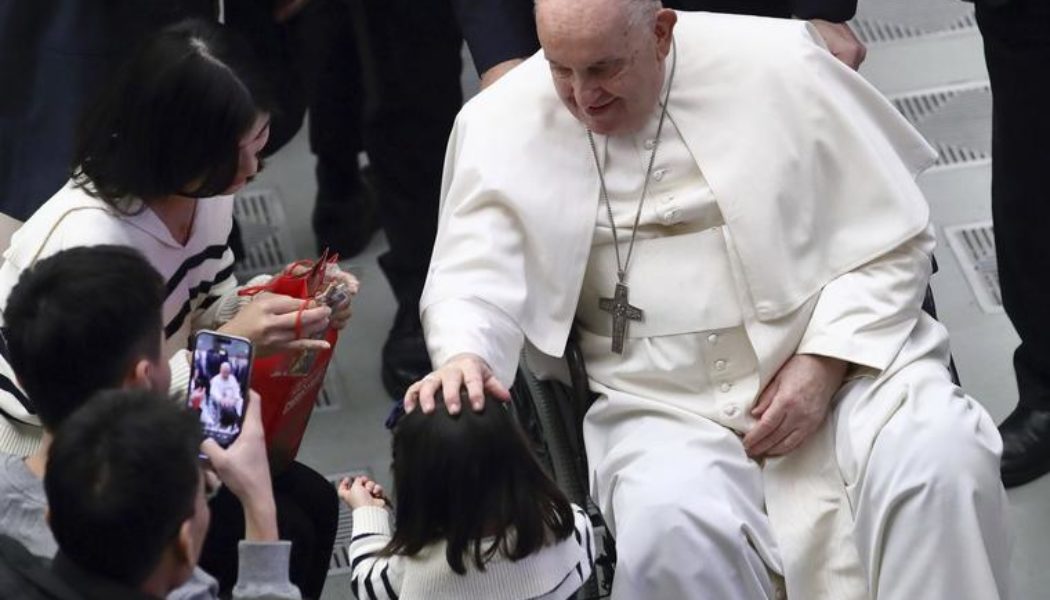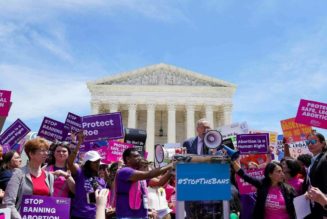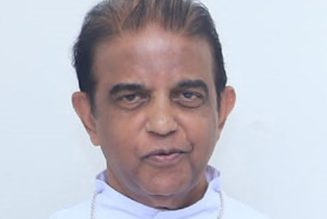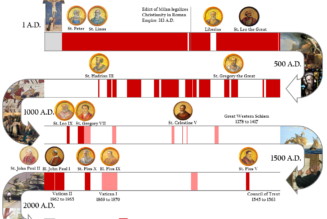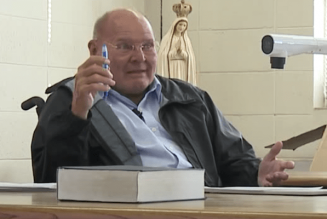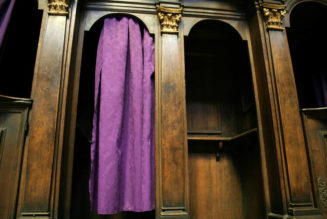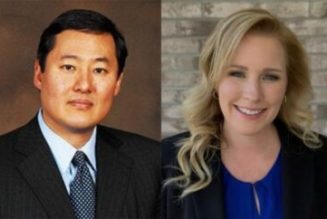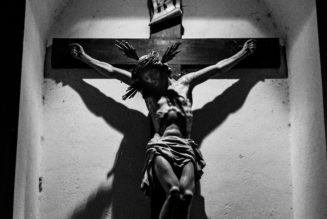
The cancellation of the papal trip to Dubai is a blessing in disguise.
The cancellation is a blessing, even as the cause is regrettable. The trip to Dubai for the COP28 climate conference would have reduced the Church to an NGO and the Vicar of Christ to her chief activist. Catholics ought to pray for the Holy Father’s recovery from illness — and in thanksgiving that he is not going to Dubai.
The intense inward focus of the Synod on Synodality for a synodal Church marked the death of the evangelical urgency of Evangelii Gaudium. The 2019 Amazon synod’s revelation that the Latin American Church was still underserving the Amazon region marked the death of the great continental mission envisioned for Latin America at Aparecida in 2007. In similar fashion, the papal trip to Dubai for the U.N. climate conference would have marked a significant erosion of the Church’s identity.
Those are strong words. But it was Pope Francis who said as much the day after his election as pope in March 2013.
“If we do not profess Jesus Christ, things go wrong. We may become a charitable NGO, but not the Church, the Bride of the Lord,” he preached that day, contrasting an NGO, a non-governmental organization, with the identity of the Church.
“When the Church wants to boast of its quantity and makes organizations, and makes offices, and become somewhat bureaucratic, then the Church loses its main substance and is in danger of turning into an NGO,” the Holy Father said a month later. “And the Church is not an NGO.”
The program for Dubai included no public prayer at all, but plenty of time for bilateral meetings. Papal trip organizers somehow envisioned the Holy Father huddled up with American climate czar John Kerry before chatting with Chinese diplomats about coal-fired plants rather than persecution of religious believers. Others seek meetings with the Pope to elevate their standing; the Holy Father in Dubai would have reduced his own.
A papal trip that includes no scheduled public prayer manifests the very loss of identity that the Holy Father warned against in 2013. Pope Francis did it once before, on his visit to Strasbourg in 2014, where he spoke at the European Parliament but didn’t visit the local cathedral, which was celebrating its 1,000th anniversary. But that visit was only four hours. The Dubai trip stretched over three days, the final one of which was to have been Dec. 3, the feast of St. Francis Xavier, patron of the missions and “Apostle of the East.” The Dubai program had nothing of the spirit of Francis Xavier about it.
Dubai is also home to an immense number of migrants, many of them Catholics from the Philippines or India, some of whom live in conditions of great hardship. A visit to Dubai that ignored them entirely would have undermined another early aspiration of the Holy Father, namely, his desire for a “poor Church for the poor.”
From Mission to Meetings
The 10th anniversary of the flagship document of the Holy Father’s pontificate, Evangelii Gaudium, was celebrated recently. There was plenty of favorable commentary on the bold vision of missionary discipleship that Pope Francis articulated then.
Yet a pontificate that began in 2013 with a summons to “get out of the sacristy,” “to make a mess” and to “get dirty” in the challenges of evangelization has, by 2023, become defined by the image of bishops and ecclesial bureaucrats sitting at round tables, talking to one another for weeks on end. They are not locked in the sacristy but the synod hall, where it is clean, comfortable and orderly.
The 70,000 officials, activists, consultants and lobbyists who will descend upon Dubai won’t be at round tables, but the affair will have the same feel of endless interventions in a process that is about processes. The U.N. climate agenda is one of perpetual consultations and, like the synod, meetings at regional, continental and planetary levels.
The COP — “conference of the parties” — has now had 28 annual meetings. It is the mother of all processes, growing more gargantuan by year. Few of those gathered in Dubai would know what “synodality” is, but many of them are masters at the art of meetings about meetings, punctuated by receptions about receptivity, networking about networks and dinners about dinnerality. A U.N. megaconference is synodality on steroids, the triumph of bureaucratic processes to no great effect.
Dangers in Dubai
In addition to the primary danger of the Church, in becoming like an NGO, losing its identity, there are three specific dangers that have been avoided by the Pope not going to Dubai.
The first danger was that the Church would put a priority on politics over proclaiming the Gospel. That was the weakness of Laudate Deum, issued by Pope Francis last month as a sequel to his 2015 encyclical on the environment, Laudato Si.
There is no doubting the Holy Father’s sense of urgency, writing that “it is indubitable that the impact of climate change will increasingly prejudice the lives and families of many persons. We will feel its effects in the areas of healthcare, sources of employment, access to resources, housing, forced migrations, etc. …” (2). That may be true — Pope Francis certainly believes so — but it is not distinguishable from the numerous policy texts put forward by other governments in Dubai.
The document was an explicitly political call for specific policies to be adopted in Dubai, as well as offering scientific analysis of climate matters. It was written in the manner of an NGO briefing paper, so much so that toward the end was appended a section entitled “Spiritual Considerations,” as a sort of afterthought, but which had no bearing on the analysis.
A second danger was that the Holy Father would come across as a high-profile role of the cleric who usurps the specific competence of laypeople in political matters. Climate clericalism is not the sort of clericalism that the Holy Father frequently denigrates, but it is clericalism nevertheless, albeit of a more fashionable kind. Clericalism in Dubai would undermine the Holy Father’s frequent criticisms of it in Rome.
The third danger avoided by not going to Dubai is that a fraternal meeting was foreseen with Sheikh Ahmed el-Tayyeb, the grand imam of Al-Azhar University, the Cairo center for scholarship that is the leading authority on Islamic law for Sunni Muslims. The grand imam and the Holy Father signed the “Declaration on Human Fraternity” in Abu Dhabi in 2019.
Cardinal Michael Czerny, who will be in Dubai, granted an interview to America magazine in which he said the following about the Holy Father and grand imam being in Dubai together:
“The dialogue, cooperation and friendship between Pope Francis and Ahmed el-Tayeb, the grand imam of al-Azhar, is like the mustard seed in the parable of Jesus: It started off as tiny, but it has now grown into a fully articulated relationship, which addresses, both in deed and symbolically, some of the world’s greatest tensions. That model of listening is absolutely indispensable if, with all our differences, we are going to live as siblings and together take care of our common home.”
A meeting with el-Tayyeb now would have been a diplomatic catastrophe for the Holy See. The grand imam “saluted with utmost pride” the Hamas attacks of Oct. 7, with no reference to the Israeli victims. Any meeting with Sheikh el-Tayyeb would have forced Pope Francis to condemn the former’s support for the killings and hostage-taking, which would have proven difficult, given their joint “human fraternity” project.
It may be that Cardinal Czerny will meet with the grand imam in the Holy Father’s absence. He would be wise to be more circumspect in his praise, lest he exacerbate frictions that have grown between Pope Francis and the Jewish community during the Israel-Hamas war.
Cardinal Pietro Parolin, Vatican secretary of state, said “the Holy See is studying the ‘modalities’ by which the Pope will take part in the discussions from a distance,” perhaps delivering his address by video. No doubt his hosts will be disappointed not to welcome him in person. The Holy Father of 2023 shares that disappointment. Pope Francis in 2013, wary of becoming an NGO, would never planned to go at all.
